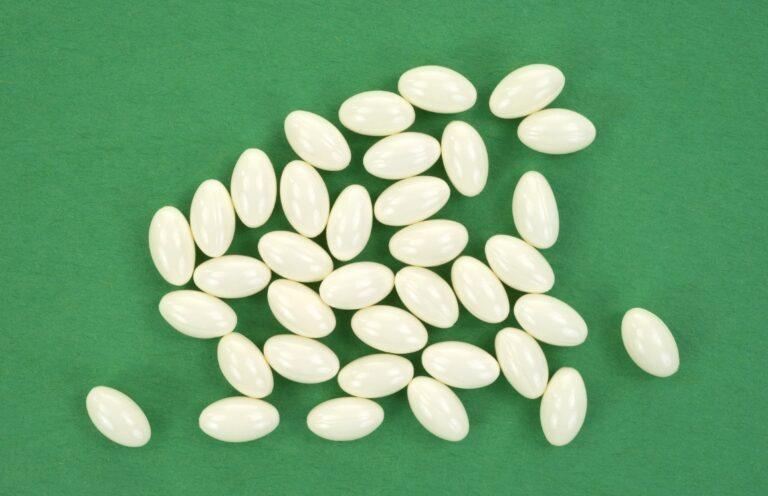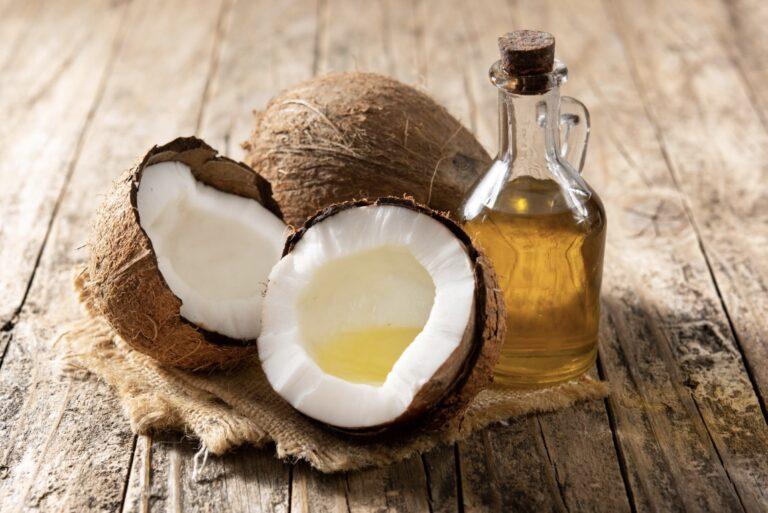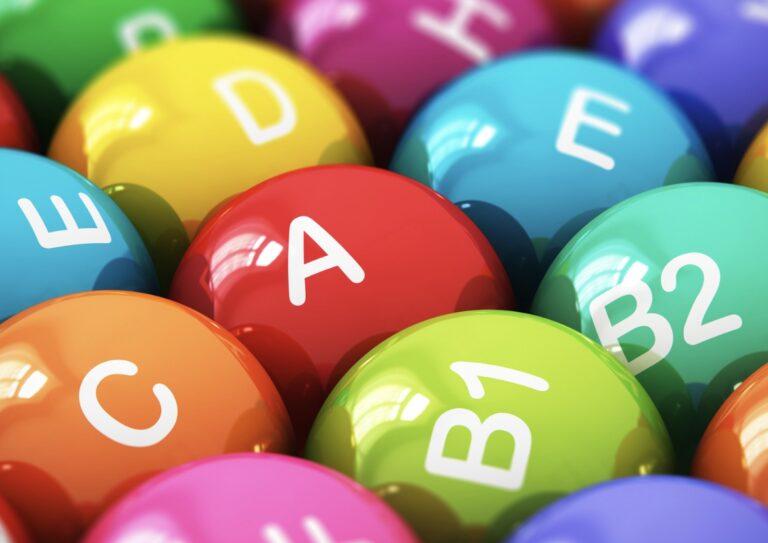Guys. You are what you eat. There’s a reason why that saying has stuck around for so long. What you put in your body can have a big impact on how you look.
But does it apply to your hair too? It might just do.
Here we’ll explain what nutrients you need for healthy hair, and what foods you can find them in. There’s a lot of pseudosciences and dodgy advice about food for hair growth online, but we’re going to stick to actual science and avoid the BS.
Can eating the right food really stop me from going bald?
Google things like ‘foods that help with hair growth’ or ‘foods for hair loss’ and you’ll find a massive amount of information online. You’ll find some pretty amazing claims. There’ll be all kinds of supplements with magic ingredients like ginkgo, aloe vera, and ginseng.
But is any of this legit?
The truth is, most of what you read online probably isn’t. A lot of the claims about food for hair growth and thickness are unscientific, and there’s no good evidence that the various supplements work.
But don’t let this put you off. There is scientific evidence that diet can help with hair loss. If you’re not getting enough of certain nutrients in your diet, your hair can thin and even fall out. If you fix these problems with your diet, your hair can become thicker and lost hair can return.
There’s even evidence that certain nutrients can help with hair lost to male pattern baldness, the most common form of hair loss in men.
Can diet affect hair growth?
Yes it can. Your hair needs a range of nutrients to grow, and not getting enough of these nutrients can cause your hair to thin and even fall out. Some nutrients, like omega oils and vitamin D, may even help fight male pattern baldness.
What should I eat to stop hair loss?
You don’t need to focus on one or two specific nutrients or foods. Eating a varied diet rich in a wide range of nutrients will help keep your hair healthy and avoid hair losses due to nutrient deficiencies. If you’re losing hair to male pattern baldness, diet may help to a degree, but you’ll likely get better results with a medication like finasteride (also sold under the brand Propecia).
How can I regrow my hair naturally?
If you have a nutrient deficiency, you may be able to re-grow lost hair naturally by getting more of that nutrient in your diet. Food and other natural products will only take you so far though. The only reliable way to regrow hair lost to conditions like male pattern baldness is by using prescription medications.
If you want to improve your diet and potentially your hair too, this is what you should be eating.
Breakfast – spinach omelette for protein, biotin, and iron
Hair is mostly made from a substance called keratin, which is a type of protein that gives your hair strands their structure. You need to get enough protein in your diet for your body to make sufficient keratin to keep your hair healthy and growing. A protein deficiency can cause your hair to fall out.
Biotin, one of the B vitamins, is also used by your body to create keratin. Not getting enough biotin in your diet can lead to problems with your hair – it can cause it to thin and fall out.
Iron deficiency is the most common dietary deficiency, and a lack of iron can also contribute to hair loss.
A spinach omelet is a great way to cover these three nutrients. Eggs are high in protein and biotin, whilst spinach is also packed full of protein and iron too.
Other breakfast foods rich in biotin include mushrooms and cheese, while other options for protein include yogurt and baked beans. You can also eat baked beans, mushrooms, and iron-fortified breakfast cereals to boost your iron.
Lunch – salmon and sweet potatoes for omega fatty acids and vitamin a
Salmon, and other oily fish like anchovies, herring, tuna, and mackerel, are rich in omega-3 and omega-6 fatty acids. Not getting enough of these fatty acids in your diet can cause your hair to fall out. There’s even evidence that these acids can prevent the build-up of DHT in the scalp, one of the main causes of male pattern baldness. Other foods rich in omega-3 and omega-6 fatty acids include shellfish, tofu, eggs, and most nuts and seeds.
Sweet potatoes are rich in the antioxidant beta-carotene which your body converts to vitamin A. Vitamin A is important for hair as it helps keep your hair follicles and the oil glands in your scalp healthy. Think of this as keeping the roots of your hair healthy and well-nourished. Other foods high in vitamin A include carrots, broccoli, peppers, and tuna.
Dinner – steak with peas and mushrooms for zinc, l-lysine, and vitamin D
zinc is an element that your body needs to function properly, but it’s one it can’t produce itself, so we need to get all our zinc from our diets. A lack of zinc can also cause hair loss.
Meat and fish are good sources of zinc, and while you probably shouldn’t eat too much red meat, beef is packed with zinc. The occasional steak as a treat will help ensure you get the zinc your body needs.
Some amino acids may also help with hair growth. One of them, L-lysine helps your body absorb other nutrients that are used by your hair, including iron and zinc. A good source of L-lysine is green peas, as well as most meats, fish, and dairy products.
Vitamin D plays a role in the growth cycle of hair, with deficiencies thought to contribute to hair loss. There’s even evidence that taking a regular vitamin D supplement can help reduce hair loss caused by male pattern baldness. Mushrooms that have been exposed to UV light are a good source of vitamin D, as is milk fortified with vitamin D, and most fish.
Snacks – fruit and berries or antioxidants
Antioxidants are molecules that prevent your cells from being damaged by reactive compounds found in your body called free radicals. A lot of vitamins and minerals act as antioxidants, so they provide your body with a double benefit.
Damage by free radicals has been linked to hair loss, while people with some forms of hair loss have higher levels of free radicals in their scalps.
You can buy antioxidant supplements, but research suggests it’s healthier to get them from food. Fruit, particularly berries like blueberries and strawberries are rich in antioxidants and can be a convenient snack.
Dark chocolate is high in antioxidants to.
A good diet is for life, not just for your hair
For each food we’ve mentioned here, we’ve focused on one or two nutrients that are important for healthy hair. However, most of these foods contain lots of the nutrients you need for your hair. For instance, eggs aren’t just good sources of protein and biotin, they also contain vitamin D, selenium, zinc, magnesium, and L-lysine.
The best advice we can give you here is to eat a rich diet of different vegetables, fruits, pulses, and grains, as well as nuts and seeds, seafood, and some eggs, dairy, and meat. This should cover all the nutrients you need. Your hair will appreciate you for it, but you’ll reap a whole host of other health benefits too, from lowering your risk of a range of diseases, to fighting erectile dysfunction.
Diet and male pattern baldness
Male pattern baldness (MPB) is the most common cause of baldness in men. It results in progressive hair loss, usually starting at the back of the crown and at the sides of the hairline. MPB is caused by a combination of genetics, hormones, and aging.
Whilst there’s some evidence that diet can help with MPB, particularly vitamin D and omega fatty acids, food will only go so far when you’re fighting genetics, hormones, and aging. It would be great if you could naturally regrow hair just by changing your diet, but this isn’t the reality. Diet may help somewhat, but if you really want to stop hair loss or regrow hair lost to MPB, you’ll likely need medication.
Finasteride and Propecia are proven medications that can stop losses and even re-grow lost hair.
Sources
Medical Disclaimer
NowPatient has taken all reasonable steps to ensure that all material is factually accurate, complete, and current. However, the knowledge and experience of a qualified healthcare professional should always be sought after instead of using the information on this page. Before taking any drug, you should always speak to your doctor or another qualified healthcare provider.
The information provided here about medications is subject to change and is not meant to include all uses, precautions, warnings, directions, drug interactions, allergic reactions, or negative effects. The absence of warnings or other information for a particular medication does not imply that the medication or medication combination is appropriate for all patients or for all possible purposes.








